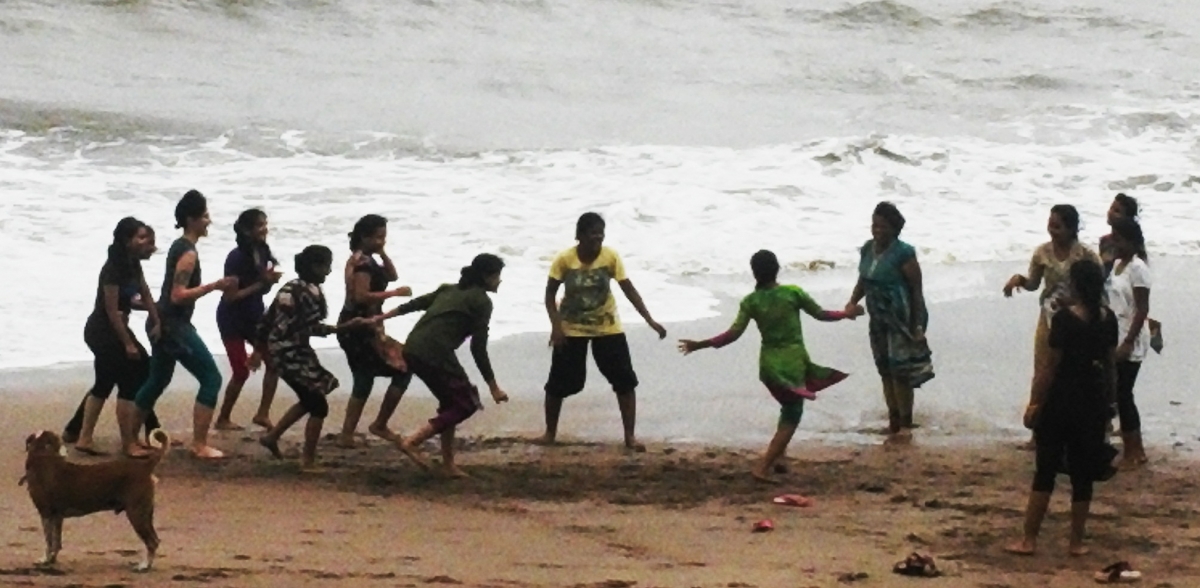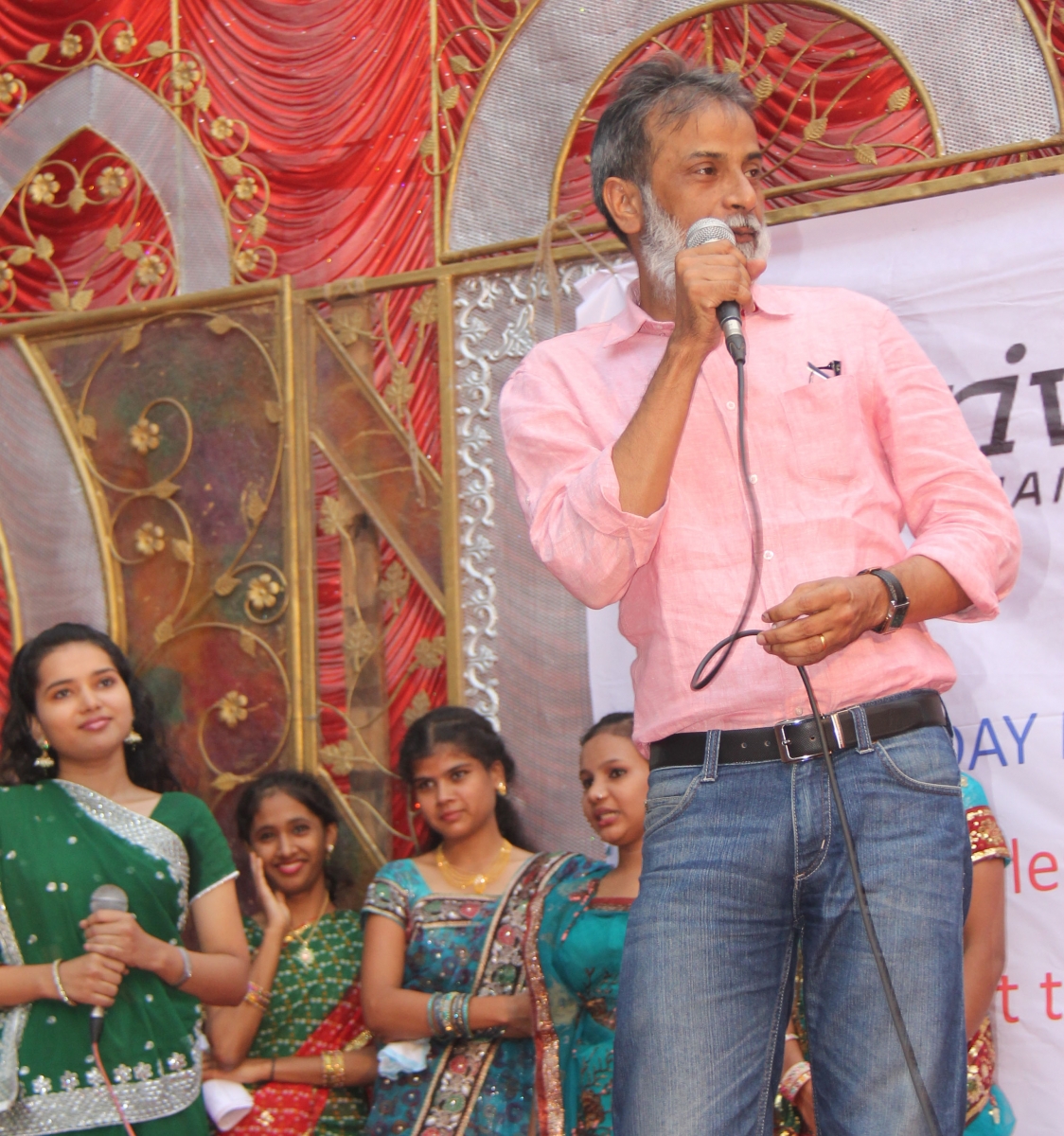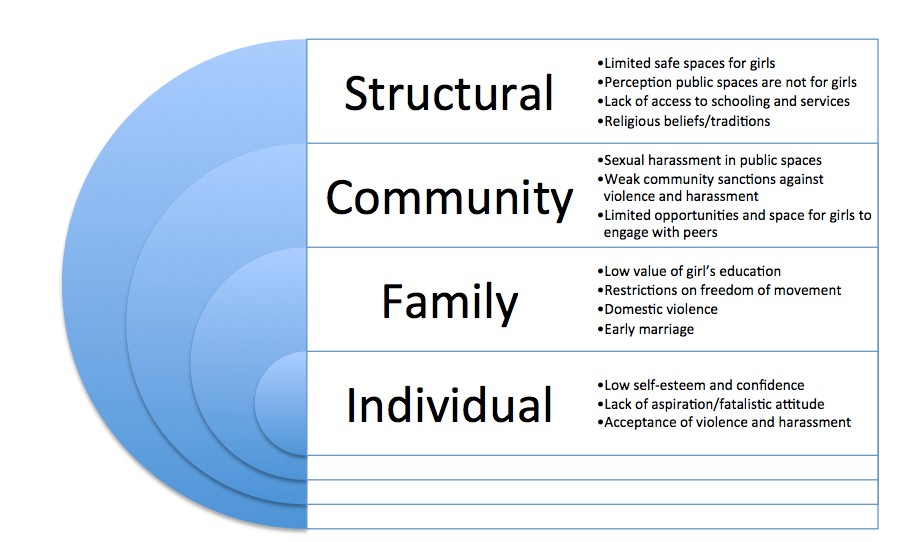Newly trained mentors addressed a crowd of 300+ at the community launch of ICRW-ARO’s programme to empower girls through sport and keep them in school. Young women aged 18–24 spoke publically for the first time at the launch, demonstrating the kind of confidence that Parivartan for Girls is designed to build. Their journey started well before the training:
To begin with I had to work a lot on convincing my family members to agree to my participating.
Parivartan for Girls mentor
What is Parivartan for Girls?
A collaboration between STRIVE research partner ICRW-ARO and community organising group Apnalaya, the programme is based in the Shivaji Nagar slum area of Mumbai. Using cricket and other sports to address violence against women proved effective in the initial Parivartan programme, “coaching boys into men”.
Explained in more detail in a recent blog, Parivartan for Girls will engage up to 150 girls, aged 12–16 years, in a programme that combines sport, discussion sessions and group education activities. Over a period of 15 months, girls will meet twice a week to play Kabaddi (a traditional wrestling game) and discuss topics ranging from life skills and health, to gender, violence and sexual harassment.

Crucially, the Kabaddi sessions will take place in public spaces – for perhaps the first time in their lives, girls will play sport in full view of their communities.
Tanya Abramsky and Madhumita Das, Wrestling for equality
The launch event
Leading the schoolgirls through a process of change will be the team of mentors. Just three months after they were first recruited, the mentors organised and ran the event to launch Parivartan for Girls at Bhudhavihar, Shivaji Nagar on 14 November 2014. In his introduction, the CEO of Apnalaya, Arun Kumar, hailed the courage of the mentors, as did others from the team.

The whole-hearted and confident participation of the mentors in this launch successfully demonstrated the significance of Parivartan in helping young women and girls to overcome challenges and reach their aspirations in life.
Shweta Bankar, Parivartan for Girls programme coordinator, ICRW-ARO
The launch proved effective as an early step in engaging the community to appreciate and support the programme. The event drew a large crowd including members of local community based organisations (CBOs) and non-governmental organisations (NGOs), the police, medical professionals and other community leaders, as well pupils and teachers from local schools and the families of participants. Representatives of the US Consulate in Mumbai attended, along with Dr Lori Heise from LSHTM/STRIVE, board members of Apnalaya and ICRW and Apnalaya colleagues.

Winning support
For the mentors – and in future for the girls they will be coaching – it is crucial to win the support of parents. This can often be a challenge, as several of the young mentors explained.
I come from a very conservative family. My parents did not allow me out of the house and playing was a faraway dream for me at that age. I first saw this as an opportunity to earn extra income, but later when I understood that there was a sports component to it, I was excited. For some time I did not tell my parents the real nature of programme. When I did, they asked me to break all my ties with Parivartan and stay home. But I had gained the confidence and the skills to explain why this was important to me and then they understood.
Ruksar, mentor
Madhumita Das, who leads Parivartan for Girls from ICRW-ARO side, emphasised to parents in the audience how important they are in transforming the lives of their daughters. She credited her own parents for her successful career, as they had supported her in achieving her ambitions, and hoped that parents in Shivaji Nagar will support their own daughters’ efforts.
By participating in a sports programme, we believe that girls will gain greater confidence and self-esteem. By aspiring to a collective goal they will learn negotiation skills and teamwork, and become more assured about claiming space as a group. These competencies will transfer into their individual lives and ultimately translate into continued education and delayed marriage.
Dr Madhumita Das, ICRW-ARO



